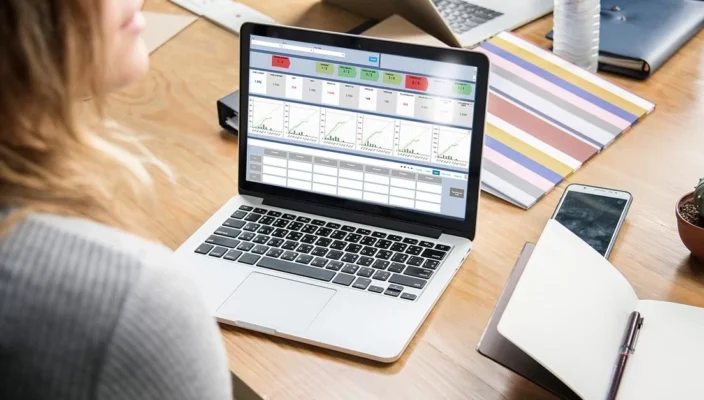
In Novacura we are always close to the real business processes and we observe the trends, so we can provide solutions that will support these trends in the upcoming years.
In the user forum of Novacura in Feb 2022 our CEO, Johan Melander, shared our observations about business trends that all companies will face in the near future. He talked about what’s going to be important, observations and requirements in the future of the IT industry.
8 business observations were listed in this forum and we’re happy to share this knowledge with you and hopefully make it easier to prepare for what’s coming.
1. Be ready for change
Change has always been part of business development, but now, due to Covid, change has come quicker than expected. We need to be more and more adaptive to the changes.
Organizations need to deliver innovation and adapt more quickly to respond to the accelerating pace of business change.
In March 2020, COVID changed everything:
- How do we work
- How do we purchase
- How do we sell
- How do we communicate
It only shows how important is the ability to change for companies.
2. Everyone and everything will be connected
All devices and everyone will be connected, which will, of course, affect all industries.
To clarify our observation about connectivity, let us use the following example; How many ERPs do you see in the picture?
In the future, we believe not only real people but also different devices, equipment, buildings, gages, computer vision systems, automated transportation systems, automated inventory systems, etc. will be connected – this is the IoT era.
3. Utilize AI
It’s time to utilize artificial intelligence a lot more. We’ve started at the entry point when we get into the customer service and support areas. We will see a lot more of this.
Reduce your workforce costs and demand by AI cloud service..your competitors have already started (...)
We dare say that more companies will implement it since it’s getting more accessible and affordable.
4. Adjust to your customer’s needs
We also need to adjust to customer needs – millennials have tons of requirements. They want it all and they want it now, so we can no longer talk about the “target groups” or industries. We need to look at every company as unique and treat our customers (and users) individually.
Customers and employees increasingly expect more contextualized and personalized application experiences.
This is not only relevant for B2C where consumers request more and more individual treatment, but it’s also highly suitable for B2B. Companies have their own requirements and want to connect their suppliers into their ecosystems, which means – they require integrations based on their rules, boundaries, etc.
5. Process-based management: Process Data Mining
It’s about time not only to define our processes, but companies should also establish a process measurement strategy and apply this way of thinking to all processes. Not only to production processes supported by MES systems but also to all business processes or i.e., warehouse processes, performed by the people. And companies must do it automatically – it should be supported by daily-use applications.
We see the importance to build efficient processes in the future, which can be done by:
- Measure your processes
- Collect process data execution
- Set process targets
- Work with continuous improvements
6. Go mobile!
In the post-COVID era, people want to work and collaborate with anyone anywhere.
By the word “people,” we mean:
- Your employees
- Your customers
- Your partners
This has been around for quite a while, but it’s time to collaborate even more using our mobile. The collaboration between customers, partners and suppliers will increase – it’s no longer a positive surprise that you have an app – it’s expected.
7. Optimize the entire supply chain
We need to optimize the supply chain, probably the entire supply chain. The outsourced business should be a native part of your organization with seamless processes: automated integration and data exchange between customers and suppliers (multi-level).
8. Every business is always online
When thinking about moving your business online, many people believe it’s about establishing an e-commerce platform. But that’s not enough. All your processes should be visible online.
For example, your ERP should be ready for online data exchange, your transportation management solution should be able to constantly monitor your shipment and update delivery status online and your warehouse should work 24/7 and offer online updated information. Everything should be connected online to the ecosystem.
To summarize
The rapid changes challenge companies all over the world to provide smooth processes. It’s expected and demanded not only by customers and suppliers but also by employees for internal processes. If you’re not already prepared for this – it’s time to start.
In our previous blog post “Benefits of using a low-code platform with an ERP system” we discuss the benefits of a low-code platform as an alternative to improve your BPM and to make sure your ERP works with your business processes. This means that it can fill the gap between ERP systems and the actual business processes in a company – since that’s what many organizations struggle with.
In the next article with highlights from this user forum, we will describe how IT should in our opinion support businesses in the trends mentioned above.









